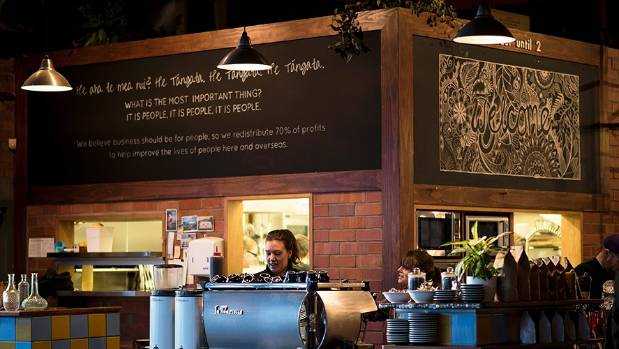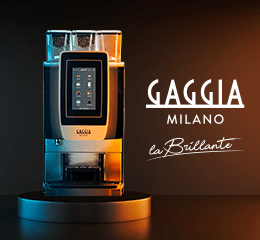CHRISTCHURCH, New Zealand – It’s Friday morning and the Addington Coffee Co-op is bustling with the busy brunch crowd. Today’s customers include mums and babies on the comfy couches, business types conducting meetings over the tables and solo customers plugging away at laptops.
Natural light pours in the rear windows, illuminating a large, dim room that once housed a mechanic’s workshop.
The cafe serves up to 1000 customers on a good day.
The exposed wooden interior, silverware that reminds you of your nana, and old-fashioned furniture offer visitors a comforting and familiar vibe.
There’s a laundry in one corner, a coffee roastery in another and a gift and book shop.
Everyone present is unconsciously enjoying that elusive quality necessary for a cafe to thrive in a heated marketplace: atmosphere.
The co-op is one of Addington Village’s success stories, an anchor in a suburb flourishing in the new order of post-quake Christchurch. But none of that atmosphere, nor the cafe’s success, has happened by accident. And that success is not being driven by the reasons you might expect.
The first clue is in the cafe’s name: co-op. Another hint is in the international flags staff use instead of order numbers.
The co-op is run by a parent company called Liminal, a group with strong global connections. One of Liminal’s founding members and cafe manager, Adrian Palmer, says the company was founded about 2008 by a group he describes as “not cafe people”.
“We had a vision to start a business in our local community that first and foremost was about people – right from the people we buy our products off, to staff and customers,” he explains.
That vision was inspired by a visit to Kolkata in India by one of Liminal’s founding members, who witnessed businesses operating under a “business for the people” philosophy.
Right along the supply chain, stakeholders in India were benefiting from the people-first approach, Adrian says. Good employment was being created, and choices in employment were being created where previously there had been none and where bonded labour and human trafficking was occurring.
Liminal’s founders decided a cafe was the right vehicle to implement a people-first business in their home city of Christchurch.
“Cafes are gathering places in a community like Addington; they are a space where everyone’s welcome. There’s something around creating a space that isn’t exclusive – homeless guys working around here, some of them will come in and get coffee.
“We don’t want to be like a club that young people can’t get in because they don’t have the right clothes. We want to create a sense of belonging.”
The group found a building on Addington’s Lincoln Rd, formerly used as a mechanic’s workshop and before that, a petrol station. Adrian recalls stripping paint from the walls. He had never imagined running a cafe as a career. After studying geography at university, he worked in event management, but found the idea of a “transformative business” interesting.
Nine years on, the cafe serves up to 1000 customers “on a good day”, attracted by his team’s consistently good coffee, food and service.
Happy customers have ranked the co-op as the best cafe in Christchurch on travel website TripAdvisor, a gesture Adrian appreciates.
“We’re grateful that people come here. Every day it’s full of people and I don’t take that for granted. We still get bad reviews occasionally – we’re not perfect – but we are really grateful for how things have turned out.
“We don’t always get it right, but we do value quality and excellence and that if we do it well, then we can run a good business that can contribute back to the world a little bit, rather than just doing a half-assed job and just pulling the heart strings. So, our story is really important, but so are you as a customer,” he says.
Liminal is committed to redistributing 70 per cent of its profits back to the local community and to some of the producers and communities overseas that create the products it sells. The other 30 per cent is reinvested in the business and shareholders do not take dividends.
Adrian is paid a salary he describes as “modest” compared with what the corporate world offers, but he is happy with that.
“It’s not that we’re giving a little bit of percentage. We kind of don’t view it as our money, almost. We’re just generating profit and the structure of our system happens to mean it ends up in our bank account, but we think we can do something better with it.”
Decisions over where the money should go became more focused as the cafe’s profits grew (in the past, staff used to vote on where the money would go).
The beneficiaries of Liminal’s profits are Addington schools, the company’s manufacturing operations overseas and its coffee growers.
“That means we say no to a lot of things as well, but means that we can build those things over a decade and see some transformation.”
Liminal works with and supports a Kolkata-based clothing business called Freeset, which gives women work sewing its products and aims to offer an alternative to sex work.
Liminal also operates a distribution business supplying products both from Freeset and from Liminal’s own manufacturing operation in India, including bags, T-shirts and customised wristbands for the Australian and New Zealand market.
Although Liminal is focused on its work in India, the company also believes in a “sort out your own backyard first” ethos, Adrian says.
The group supports schools by helping fund pilot programmes that build connections between the school and parents of students.
“We reckon that a school that’s connected to its community is good and healthy. Schools that are low-decile can struggle with that. So, it’s kick-starting coffee carts in local schools so parents can come get a cheap coffee at the start of the day – things like that.”
The co-op is also known for giving those struggling to find work in Christchurch a fair go.
Elsewhere in Canterbury, the group has a property in Little River with “dreams and schemes” of growing produce for the cafe and elsewhere.
So far, floods have disrupted those plans, but the property provides a healthy country space where staff and community members can visit or stay.
An experimental vegetable garden is being established by Caleb Martin, who lives on-site with his wife and two children.
Caleb had worked at the co-op on and off before moving to the Little River property in 2016. He works part-time on the property and part-time in the city.
The property is still in a “start-up phase”, with facilities being established. However, he and his family are enjoying their new rural lifestyle.
“It’s a really nice small-town community. It’s a country escape, but still close to the city, so it works in lots of ways,” Caleb says.
As for what’s next for Liminal and the co-op, Adrian says there are no plans for another cafe.
Instead, the group is keen to see its manufacturing business grow into global markets and is ambitiously planning for that. It was always the intention that Liminal would pivot towards its operations in India, he says.
“The cafe is the face of who we are at the moment and I think that is going to change – not that this will reduce, but everything else will grow around and this will become a nice wee local expression of it. And that’s our dream.”
Asked if religion is a factor in the group’s good works and ethos, Adrian says there is a church connection, but that is incidental.
“Regardless of where your religious viewpoint stands, there’s just something in you that makes you think ‘I want my life to not just to be for me’.”
The point is to leave a legacy of contributing to the planet, rather than just taking from it, he says.
“We’re not just doing it for the feel-good factor . . . if you look at all the things going on in society now, something like 15 people control half the world’s wealth. Look at how that plays out across the world; visit some of those places like in Kolkata, many places around the world, even in our local communities. It doesn’t have to be like that.”
Liminal does operate under capitalist principles, but for the greater good, Adrian says.
“I suppose at its heart is, we’re a business, but the biggest difference is that we’re for profit, but not for us … instead of accumulating, we’re part of the trickle-down.”
On its website, Liminal states it aims to be a small part of the solution to the big issues of “poverty, injustice and power imbalance” facing the world today.
By relaxing and enjoying their daily caffeine fix, the co-op’s customers can feel they are a small part of that solution, too.
Amy Wright














